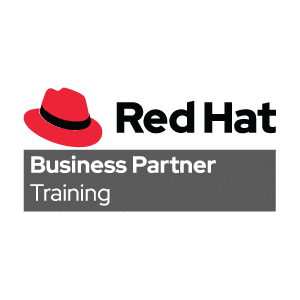Build essential skills to implement agile and DevOps development processes and workflows.
DevOps practices have enabled organizations to undergo a digital transformation, moving from a monolithic waterfall approach to a rapidly deploying cloud-based agile process. This transformation requires a team of developers trained to use tools that enable them to spend more time coding and testing and less time troubleshooting. Red Hat DevOps Pipelines and Processes: CI/CD with Jenkins, Git, and Test-Driven Development (TDD) is a practical introduction to DevOps for developers that teaches students the necessary skills and technologies for automated building and deploying of cloud-native applications.
PRO Tip: The demand for DevOps professionals is skyrocketing. According to Global Market Insights, the DevOps market exceeded $8 billion in 2022 and is projected to maintain a speedy 20% compound annual growth rate (CAGR) from 2023 to 2032. Get additional insights/guidance with these blog posts:







